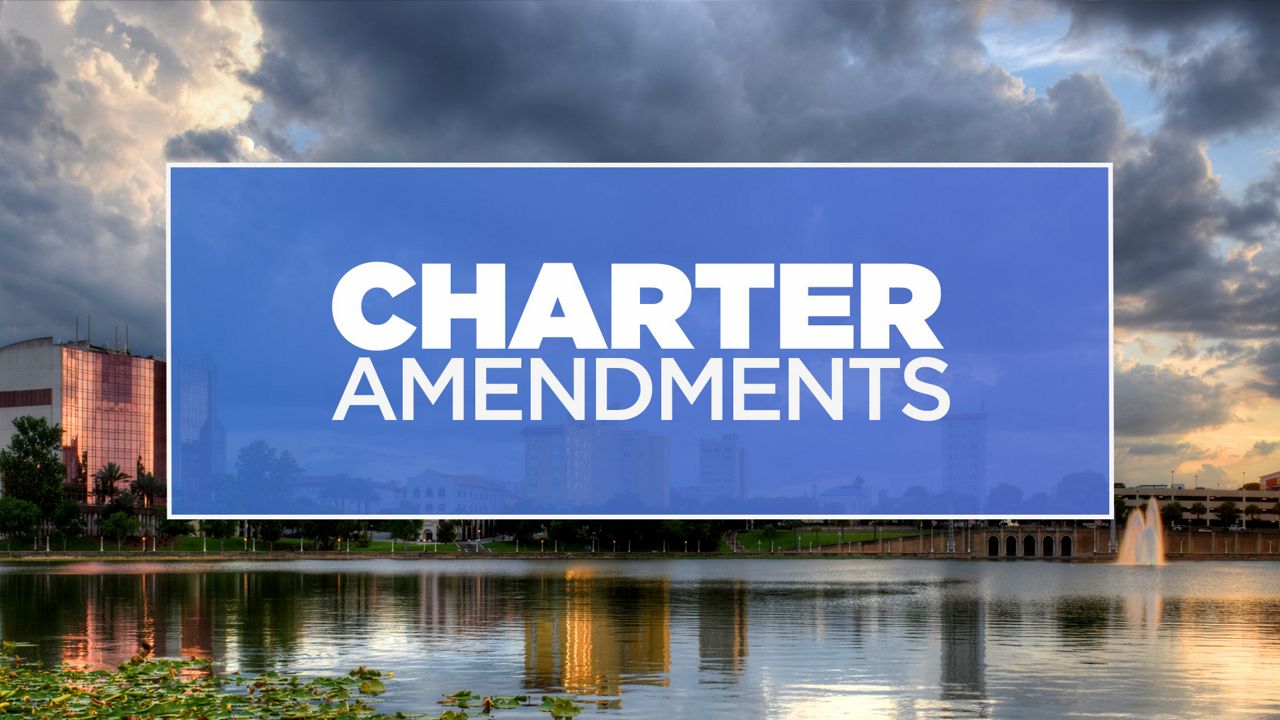LAKELAND, Fla. - When City of Lakeland residents go to the polls on Tuesday for its municipal elections, they might have a bit of Déjà vu.
- Lakeland voters to decide changes to City Charter
- If approved, biggest changes to City Charter since 1976
- Like 2018 Midterms, one bundled amendment combines different issues
- More Decision 2019 headlines, resources
Like in 2018, residents there have to decide on three ballot amendments.
Some of them are bundled with many different issues put into the ballot by the City Charter Review Committee, very much like 2018’s Constitution Revision Commission initiatives.
If Lakeland residents favor any of the three, they will be making substantial changes to the City’s Charter.
And if they have a habit for following trends, they will pass the bundled amendments, as most Lakeland precincts did on 2018's Florida constitutional amendments, such as Marsy’s Law (Amendment 6) and the Offshore Drilling/Vaping Bans (Amendment 9).
The two 2018 amendments were passed by Florida voters and most Lakeland precincts did the same.
For Tuesday's municipal elections, the three ballot initiatives would make changes to the Charter ranging on issues from term limits to who is able to approve the sale of a city utility.
Charter Amendment #1 is the big bundle. It reads as follows:
“Do you favor an amendment to the Lakeland City Charter eliminating unnecessary or obsolete references and provisions; amending any gender related references; adopting applicable state law provisions; providing periodic commissioner pay adjustments similar to city employees; eliminating reduction in force provisions; creating a charter review committee and providing a periodic charter review process every 8 years; delegating regulation of taxi cabs to the City Commission; eliminating obsolete references to the Hospital Board?”
This amendment is asking voters to say 'yes' or 'no' to different issues with one vote. Mainly, it asks voters to remove obsolete language from the charter, but it also adds new measures.
- It would make gender references in the charter to include the female gender or make them gender-neutral.
- It would deregulate rules on taxis and ride-share services such as Lyft or Uber and hand the power to impose regulations in the future to city commissioners.
- It would codify into law a process to review the City Charter. This would begin in 2024 and take place every eight years.
- It would change the way commissioners get pay raises. Currently, commissioners vote on it. If approved, commissioners' salary raises would get the same treatment in raise schedule as do other city employees each fiscal year.
- It would change who the city clerk gives his report from the current finance director to the city manager.
- It would streamline the process on how to layoff city employees and delegate more responsibilities to city department officials.
- It would also change city laws of how they borrow money. Bond repayments would go from current 30 years to 40. And it would eliminate a cap on the interest rate.
Charter Amendment #2 deals with term limits of city officials.
The changes, if approved, would mean the most a city commissioner can be in office is 12 years. There is a condition where a commissioner can serve another four years if that person runs for mayor after completing term limits.
The amendment reads as follows:
“Do you favor an amendment to the Lakeland City charter that reduces the maximum allowable terms of city commissioners and mayor from 4 terms to 3; defining a term as any service in office over 2 years; allowing existing incumbent commissioners to serve a total of 4 terms as a commissioner and mayor combined?”
Charter Amendment #3 asks voters to change the municipal language on who approves the sale of the city’s utilities.
“Do you favor an amendment to the Lakeland City Charter that changes the approval necessary to sell any water plant or electric utility from the existing requirement of 2/3 of all electors qualified to vote to 2/3 vote of the City Commission and 65% of those actually voting in the next general election following City Commission approval?”
The amendment, if approved, would remove a requirement that 66 percent of qualified voters must approve a utility sale.



